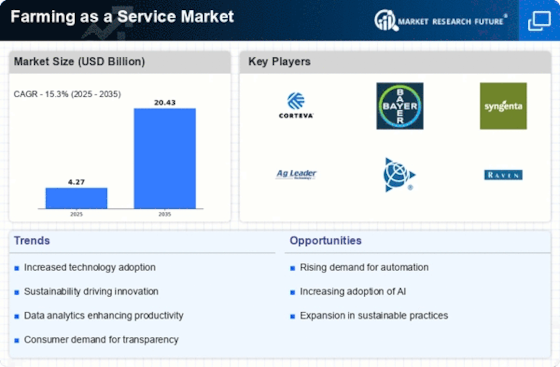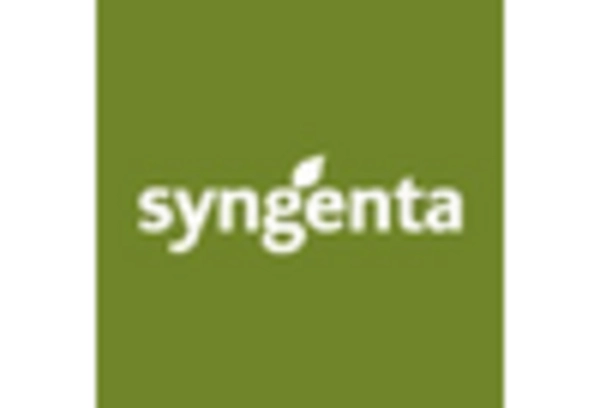Market Share
Farming as a Service Market Share Analysis
The Farming as a Service (FaaS) market is experiencing notable trends as agriculture undergoes a digital transformation, leveraging technology to enhance efficiency and productivity. FaaS represents a model where farmers can access and utilize various agricultural technologies and services on a subscription or pay-per-use basis. Among the driving forces that are pushing the market of FaaS is the growing number of farmers who are adopting the modern technology called precision agriculture. Precision agriculture employs vehicle location technique which uses satellite global position (GPS), sensors, and data analysis to provide site-specific solutions and content for the paddy farmers to have precise knowledge of operations, for instance; crop cultivation, irrigation and resource allocation.
The need of agtech startups plus the collaborations is as well a significant phenomenon in the market for FaaS. Digital systems are increasingly present in agriculture like technology driven startups (from IoT to wearables) in this field now are more common. Collaboration between dominant agricultural companies and the startups leading adoption of these innovations is forming a vibrant ecosystem that helps farmers acquire latest technologies. This fast-growing trend provides an agile means of introducing these innovations into the agriculture industry and these platforms can be the mode of delivering these directly to farmers.
The implications of climate change and the possibility of utilizing sustainable agriculture are in fact changing the market norms in agricultural sector area. The occurrence of changing weather patterns has become more and more difficult to brush aside, and depending on how fast the global population grows, there comes a more important consideration of the implementation of environmentally sustainable agriculture system. Through the FaaS solutions, which anticipated events and climate change modeling, the farmers, now can adapt to the changing conditions in addition to the resource optimization and environmental impacts minimization. They help to do more sustainable as well as climate-proof crop practices can be created in this way.
The idea of ensuring farm-to-fork traceability is swiftly becoming very popular with customers belonging to the FaaS community. The consumers are continuously getting values on where their food is coming from and what is quality. Traceability is included in FaaS platforms to provide the farmers with a lifecycle record where they may track and record the products from sowing to harvesting and distribution. This openness strengthens the relationship with the consumers and enables the communication network which can support for the sustainable and ethical supply chains.
Financial technology the integration of which into FaaS are becoming more and more common, most especially to giving access to funding and financial tools to farmers with whom it really matters. FaaS platforms are exploring partnerships with fintech companies to offer farmers seamless access to credit, insurance, and other financial services. This financial inclusion aspect addresses a longstanding challenge in agriculture, where access to capital has often been a barrier to adopting advanced technologies.


















Leave a Comment